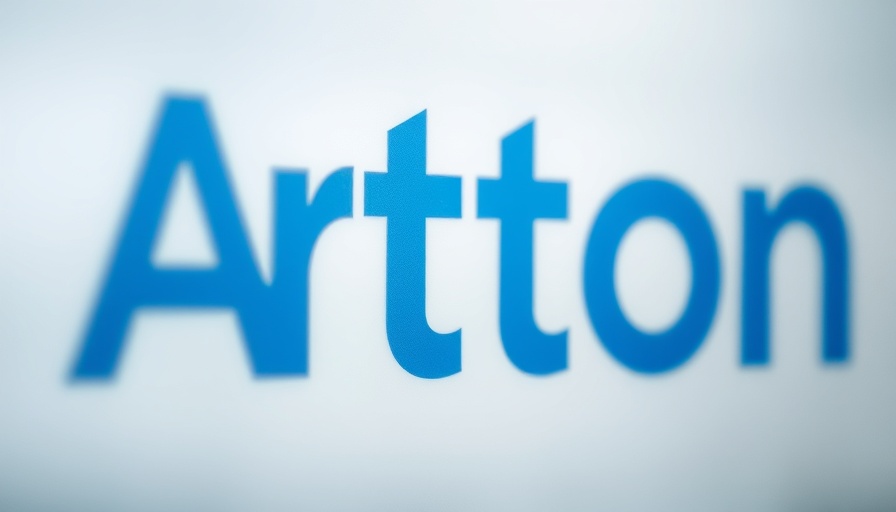
Hyundai Steel's Controversial Investment: What Investors Need to Know
In March 2025, Hyundai Steel unveiled a bold $6 billion investment in the United States that has sparked a wave of investor skepticism. This decision, framed as part of a larger $21 billion investment plan by its parent company, Hyundai Motor Group, raised immediate questions about feasibility and timing, particularly in light of ongoing trade negotiations and the shifting landscape of U.S. tariffs, announced by President Trump at a time when the steel industry's future hangs in the balance.
Investment Challenges and Market Reactions
Since Hyundai Steel’s announcement, shares of the company have plummeted, losing over 21% of their value, creating palpable concern among investors and analysts alike. The company's rapid call to reassure stakeholders, where officials cited the urgency due to evolving U.S. tariff conditions, highlights the precarious position Hyundai Steel finds itself in. Investors expressed doubts about the practicality of the investment, questioning whether building a plant in Louisiana serves their operational needs, especially when considering the proximity of Hyundai’s existing assembly lines.
The U.S.' formidable 25% tariffs on imported automobiles, put in place just after the investment announcement, further complicate the matter. This raises critical questions about the long-term strategy of Hyundai Steel and whether such a sizable financial commitment will ultimately be an asset or a liability.
Strategic Implications of U.S. Tariffs
The political backdrop adds another layer of complexity to Hyundai Steel's investment decision. Amid a political vacuum following the impeachment of former President Yoon Suk Yeol, South Korea's government is under pressure to secure favorable tariff terms during discussions with U.S. officials. As Hyundai Steel underscores the ambitious nature of its investment, industry experts wonder if the state has sufficiently analyzed the risks of fluctuating tariff policies and the repercussions on trade relations.
Experts are questioning the efficacy of long-term gains, contemplating how shifting U.S. policies could affect profitability when the plant becomes operational in 2029. The growing competition from cheap Chinese steel further emphasizes the urgency for strategic clarity and responsiveness from South Korean manufacturers.
Investor Concerns and Expectations
On the investor call organized by Hyundai, participants were keen to address critical points: What specific concessions is Hyundai Steel attempting to secure from the U.S. government? How does the company plan to manage customer demand for the new facility? Investors' probing highlights a need for transparency in strategic decision-making, especially when facing considerable market disruptions.
For those directly involved in financial planning, Hyundai Steel’s situation draws attention to the importance of risk management in investment strategies. It exemplifies the necessity of adapting to external factors that affect market stability, whether through diversification or by re-evaluating asset allocations to mitigate potential losses.
Revisiting Financial Strategies Amidst Uncertainty
As Hyundai Steel battles investor sentiments, it's essential for investors and financial advisors to assess the situation not merely as a one-off investment decision but as a critical case study in corporate governance and strategic financial planning. The stock market's volatility reflects broader economic themes that could influence future investment decisions.
Practicing sound financial planning means considering all angles, including potential changes in the regulatory and economic environment. It may become necessary for investors to reevaluate their long-term strategies in light of Hyundai's current challenges. Investors should actively engage their financial advisors to discuss comprehensive wealth advising and strategies that foster wealth preservation against market unpredictability.
Concluding Thoughts: What Does This Mean for Investors?
In closing, the $6 billion investment decision by Hyundai Steel encapsulates not just the immediate financial implications for the company, but also broader lessons for investors navigating uncertain markets. The need for vigilance, thorough financial analysis, and an understanding of global economic conditions has never been more evident. Investors would do well to remain engaged, review their investment strategies, and prepare for any potential shifts in the landscape.
As the fallout from Hyundai Steel’s high-stakes decision unfolds, now is the time for investors to seek clarity and direction, ensuring their portfolios remain resilient in the face of change.
 Add Row
Add Row  Add
Add 




 Add Row
Add Row  Add
Add 

Write A Comment